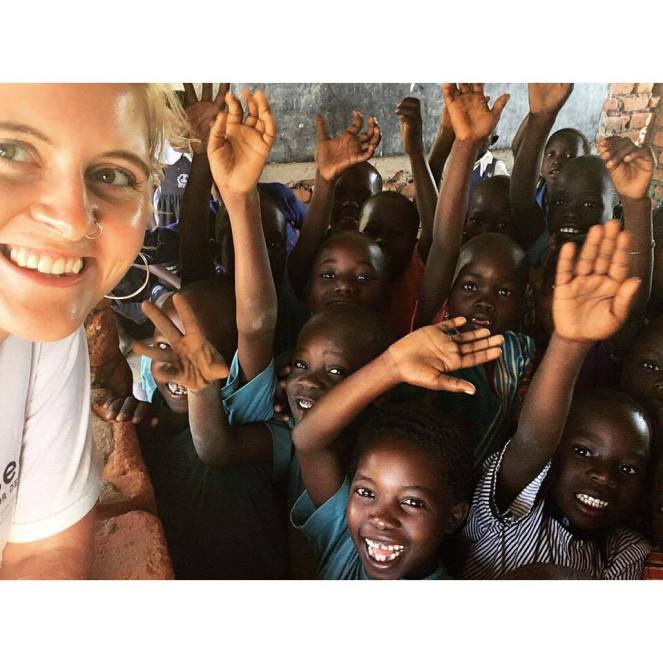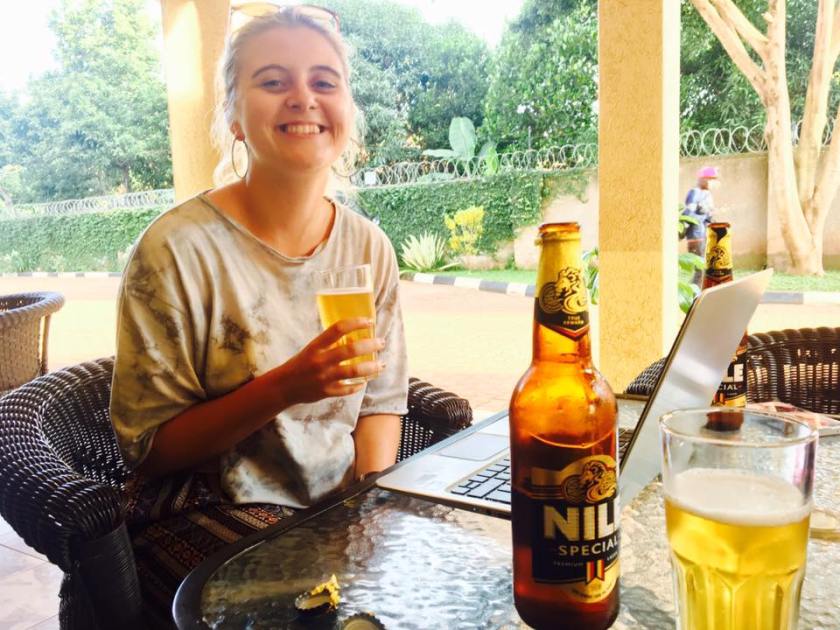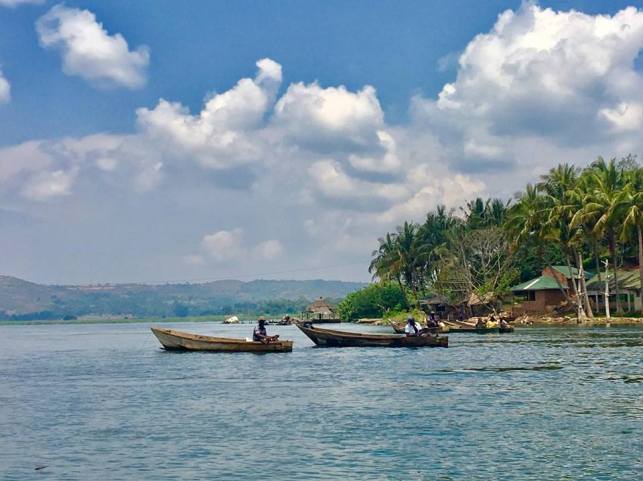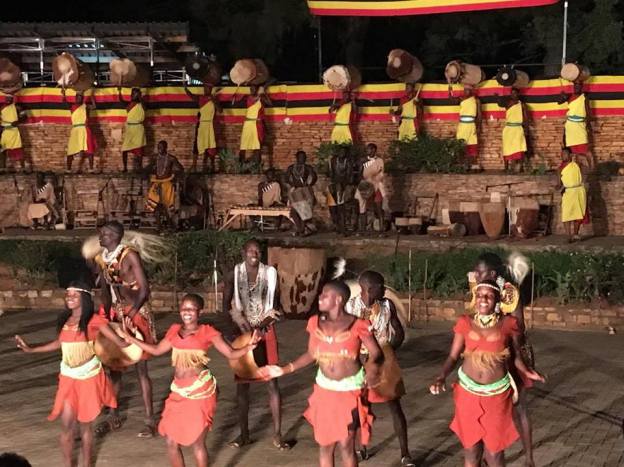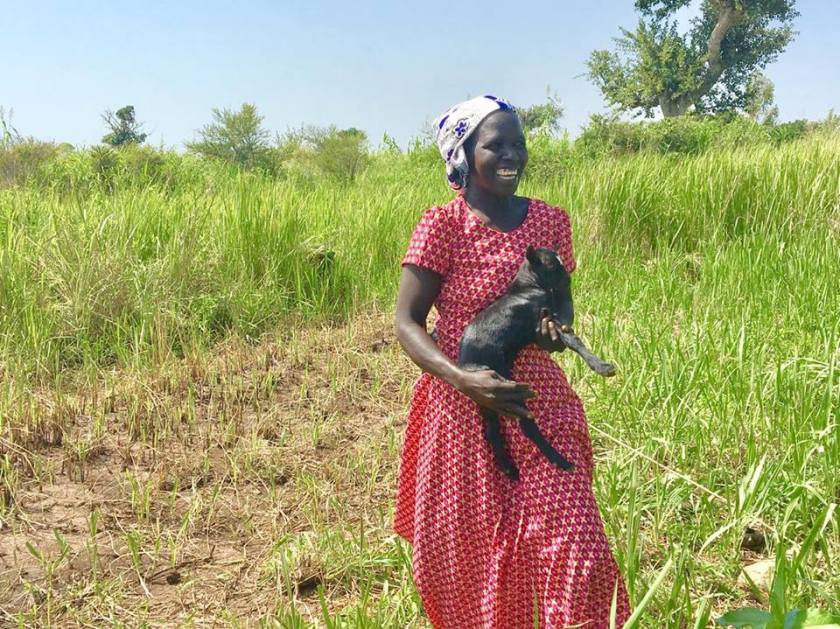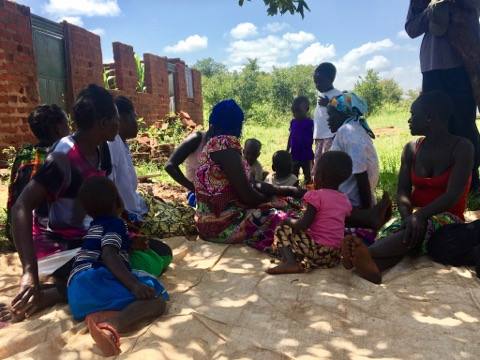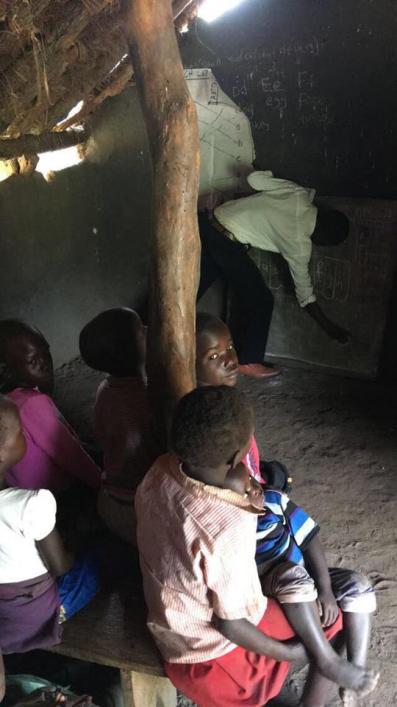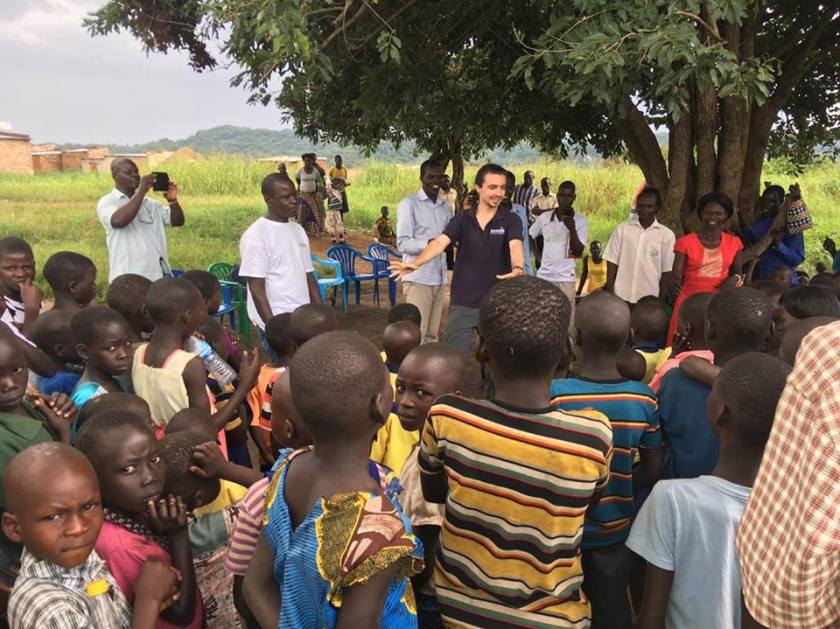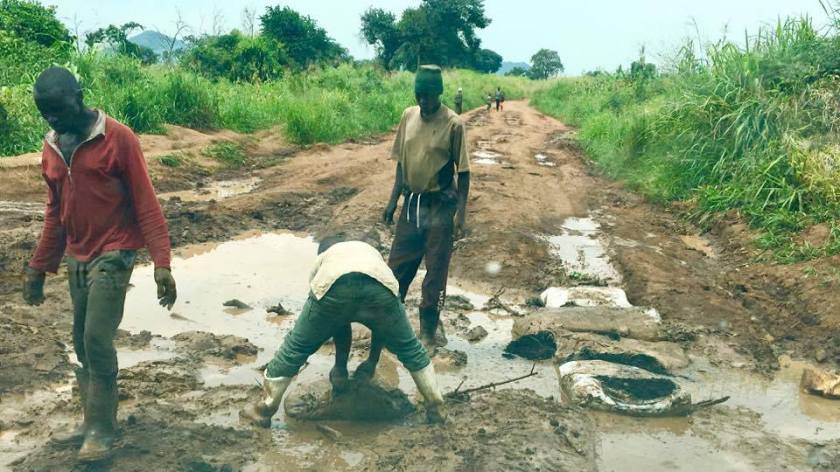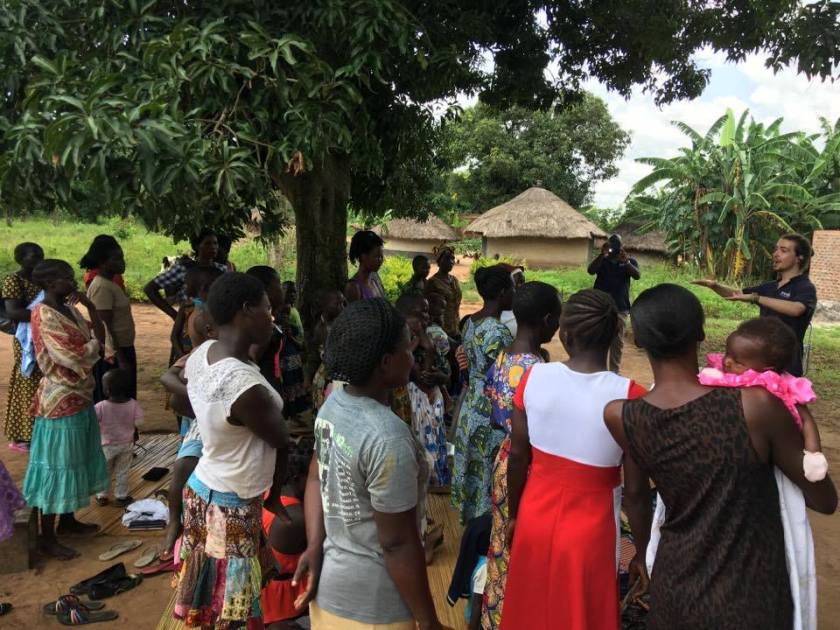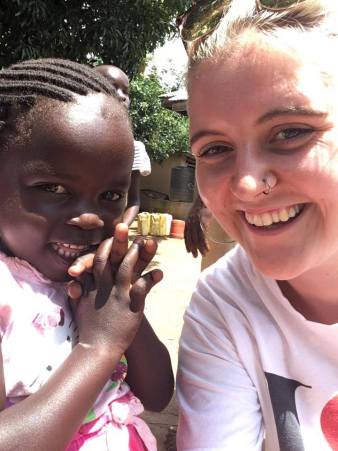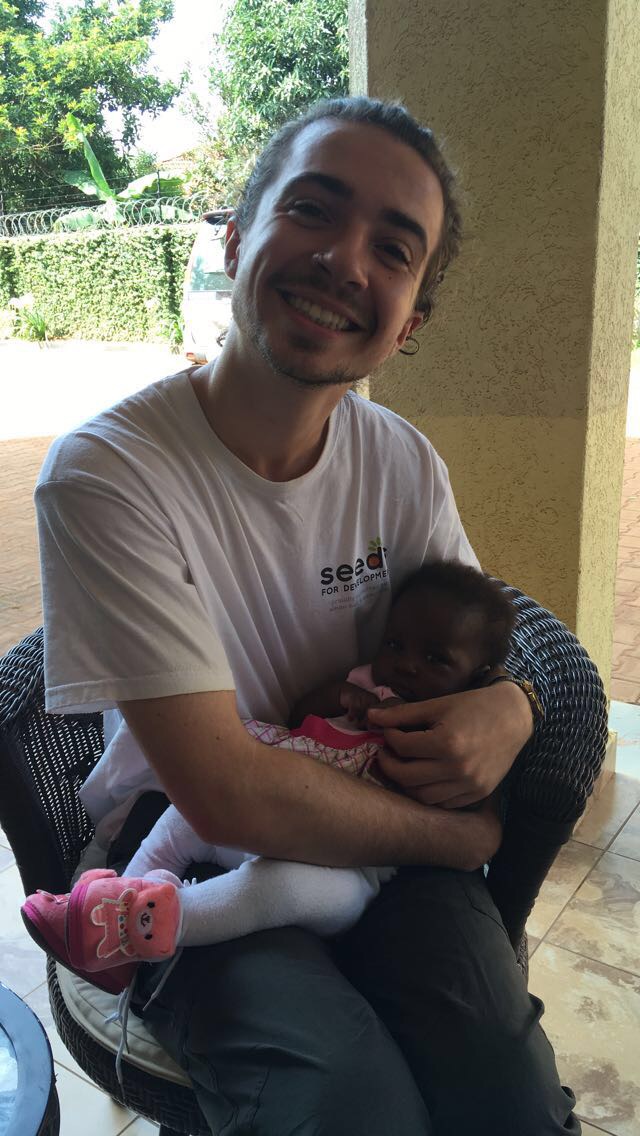Today was my favourite day so far, for a few reasons. We finally visited James’ school, Vision Hope, were invited for lunch at his home, and I finally got the chance to talk to some teachers and farmers about health and sexual education.
We spent a long day in the community of Lambogi, visiting Vision Hope primary and nursery school, and the local farming community, their parents. We had been looking forward to meeting the children and teachers of Vision Hope, as this is the school of which James is headmaster. It was wonderful to see that James’ passion for learning, and his zeal for life generally, has definitely permeated the school’s atmosphere. There were four small classes, and as we passed through each classroom we were greeted with a huge variety of different songs and voices, welcoming us. Each teacher could capture the attention of their students with the words “smart children!”, to which they would chant back in fullest voice, “smart teacher!”. Smart children indeed.

Peeking out of the windows of a classroom
Our singing workshop with the children went brilliantly. We sang Tim’s hardest arrangement – ‘We are Vision Hope’ – with the oldest class, and then joined the rest of the children to teach another song. The whole school then taught Tim and I a dance.
The farmers and teachers were similarly impressive singers. It never fails to make me smile when Tim manages to get a whole crowd of grown adults in fits of laugher over his warm up techniques – “before we start singing, we first have to warm up our bodies!”, queued by everyone shaking it all about, Hokey-Cokey-style.
By far the most rewarding part of the day for me was the conversation I had afterwards with the female teachers of Vision Hope, and the mothers of the female children. When, months ago, Alison asked me to provide some women’s health education out here in Uganda, I wasn’t quite sure what to teach. I later discovered that any discussions I had were to be quite focused on the young girls, and common problems that jeopardised their education in Uganda. So this is what we discussed.
I thanked the mothers and teachers for coming out to listen to me – I hadn’t expected so many. I even had three teachers who translated for me in the native Acholi language. I had been told by Alison and others that the most essential thing for me to stress was the benefits of keeping these girls in education. I had an emotional conversation with James a few nights back, in which he had expressed how upset he is that throughout Uganda, often when girls start puberty and begin to get their periods, they drop out of school, out of shame and embarrassment. Things are no different in his community – the oldest girls in Vision Hope, or those whose parents have managed to afford secondary school, very often drop out of education when their bodies start to mature. These teachers confirmed that this indeed was a big problem for their school; it was devastating to hear that when a period comes, usually in the absence of sanitary products and even sometimes underwear, these poor girls run home. I discussed this problem with the teachers and the mothers, and stressed the importance of sitting these girls down, at a young age, to teach them that this daunting process of menstruation is absolutely natural, merely the (inconvenient) way their bodies prepare them for a potential pregnancy. I encouraged them to have open and frank discussions with their girls, and to support them completely, in whatever ways they can, when the time comes for them to start their periods.
The other topic to come up during our discussion was underage pregnancy – or, in other words, sex ed (sexual education)! I, again, reiterated the importance of having frank and uncompromising discussions with the girls about the biology behind pregnancy. I have been told that young girls in Uganda become pregnant simply because they do not scientifically understand how they become pregnant, and are taken advantage of by older men. James explained to me that in Uganda, sex education for young ones is scarce due to the culture that prevents people from discussing intimate matters such as this. They were amazed to hear that I was first introduced to sex education in primary school, aged 11 (if you’re reading this, thanks, Ms Fawcett – I vividly remember our formative lessons!). Again, using my innate inability to feel embarrassment around such issues, I heard myself fervently telling these women that the most obvious answer to this problem was frank, unambiguous, unadulterated discussion with their students and daughters. I know that in these northern, remote, rural parts of Uganda, without the easy medical access and finances needed, transparency may be all these women have. Linking to this, I also mentioned that within sexual education could be taught HIV prevention. In Uganda, the percentage of people diagnosed with HIV is 7-8%. It has been worse, but there is still much work to do to combat this problem. Above all, I reiterated that a long and fulfilled education for these girls is the best medicine they can receive. Do everything you can to keep your girls in school, I said.
Whilst listening to the teachers translate, I eagerly tried to read the expressions on these women’s faces, but came up short most times. I worried that these women, intelligent and experienced, felt patronised or dismissive of what I was trying to teach them. But not for the first time, the kindness and gratitude of Ugandan strangers touched me. After I had finished my talk, these women communicated their thanks to me, asking me questions, genuinely interested in my advice. They recognised the problems of their community, and resolutely agreed with me when I argued that their girls deserve equal opportunities to men. And again, not for the first time since being in this country, our new friends were keen to know when we would be back to visit.
